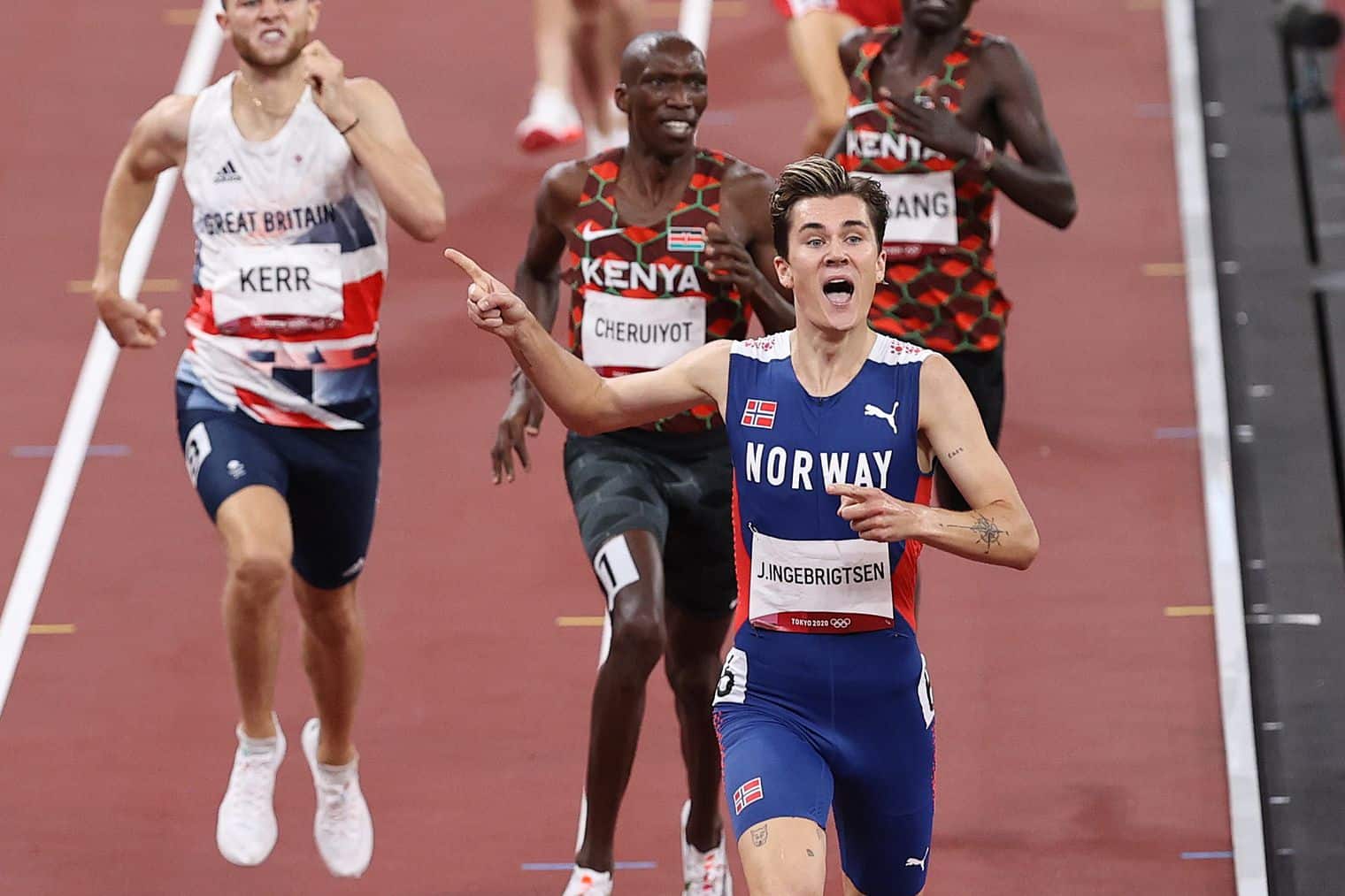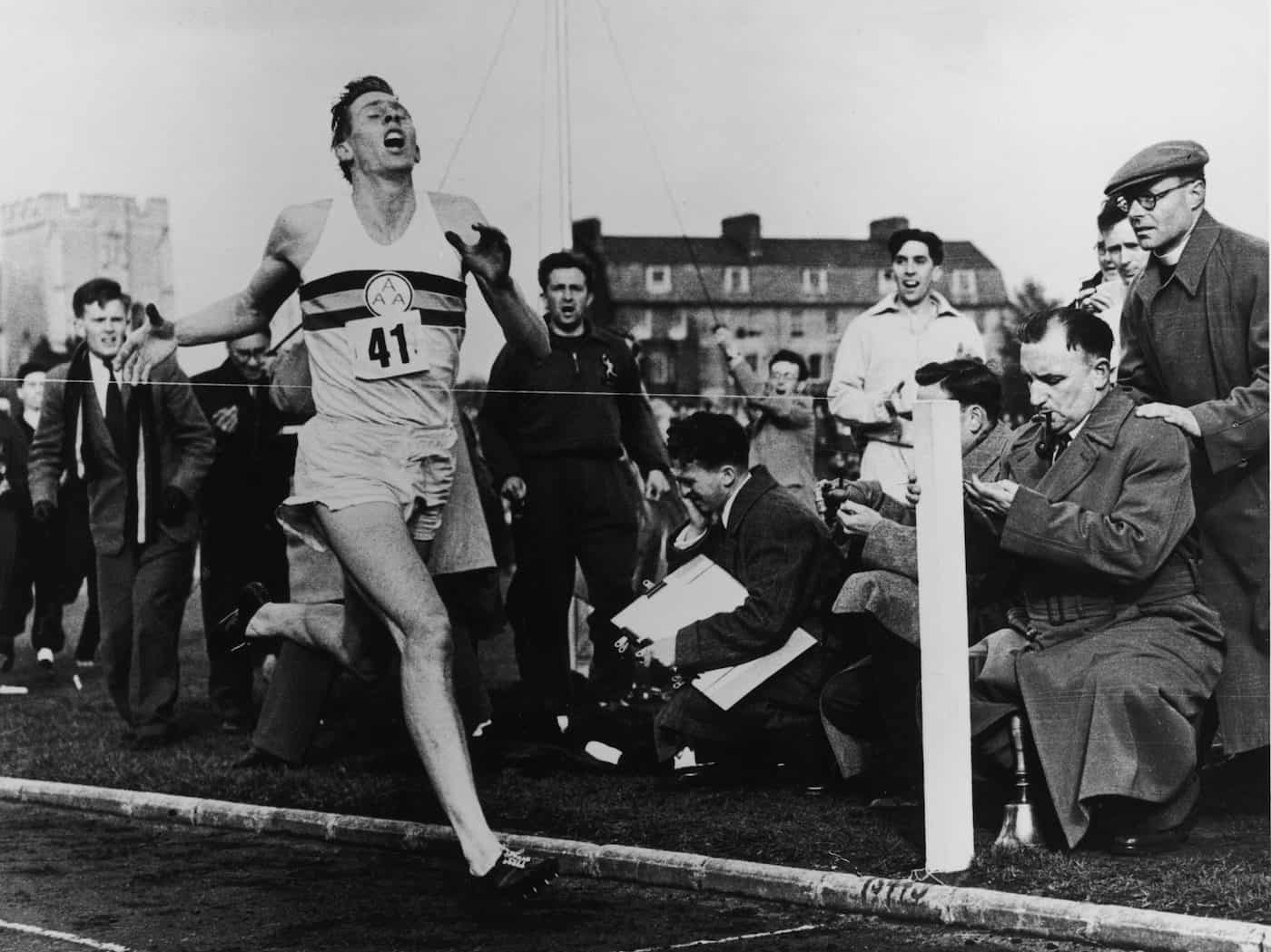When John Walker was asked about his ‘modest’ winning time in the Montreal 1976 Olympic Games final, he reputedly responded that world records are made to be broken, gold medals last forever.
It’s true, too. A year earlier Walker had become the first man to break 3:50 for the mile when he ran 3:49.4 in Gothenburg. His Olympic gold medal was won in 3:39.17. The world record held up for just four years, broken by a young Englishman named Sebastia Coe in Oslo in 1979. Walker still has his gold medal. Coe soon enough had his own experience of the fleeting nature of world records as he and Steve Ovett swapped the mile record back and forth and back again three times in 10 days in 1981.
We don’t know whether Yared Nuguse was aware of such salutary tales when he ran a world record 3:46.63 in the Wanamaker Mile at the Milrose Games a week ago (8 February). We assume he did know that Jakob Ingebrigtsen was lining up his own attempt on the short track mile world record five days after that at Lievin and that the Norwegian rates the French indoor venue as one of his favourites. At the very least his new record would come under immediate challenge.
We know now that Ingebrigtsen won the mile in Lievin in an astonishing 3:45.14, almost a second-and-a-half faster than Nuguse’s performance. It may be naïve to expect your world record to last forever, but five days is not even long enough to get used to it. Alas, poor Yared. We hardly knew him.
There’s been a bit of needle around men’s middle-distance in recent times, with Ingebrigtsen enjoying clear superiority on the international circuit but losing successive global championship races to British middle-distance pair Jake Wightman (worlds, Oregon 2022) and Josh Kerr (Budapest 2023) and being edged out of the Olympic medals in Paris by America’s Cole Hocker, Kerr and Nuguse.
Most of the back-and-forth has been between Ingebrigtsen and Kerr. But with Kerr absent from Milrose (illness) and never running at Lievin, Ingebrigtsen had a pointed dig at Nuguse, posting on social media: “Sorry @yaredthegoose ! Looking forward to race you. Best, Jakgoat.”

When Ingebrigtsen won the Olympic 1500 in Tokyo in 2021 a month or so short of his twenty-first birthday he seemed set fair to dominate the event for some years to come. It hasn’t worked out that way. Unarguably he has been the pre-eminent performer – no.1 ranker at 1500 each year from 2021 to 2024. His versatility is remarkable – world champion at 5000 in 2023 and 2023, Olympic champion in 2024, world record 7:17 in the 3000. But there’s the lingering doubt from four defeats – all by different athletes – at the 2022 indoor and outdoor worlds, the 2023 worlds and 2024 Olympics.
But if anyone was tempted to think championship defeats might deter Ingebrigtsen sufficiently to distract him from middle-distance glory, Lievin suggests precisely the opposite.
Yared Nuguse would not have been silly enough to assume his world record run in New York might have shut the door in Ingebrigtsen’s face. But a 3:45.14 – accompanied by a 1500 indoor world record en route – is some sort of riposte. It’s reminiscent of that scene in Stanley Kubrick’s The Shining when the deranged husband puts an axe through the door, places his face through the broken panel and yells: “Here’s Johnny!”
Not that he ever went away, but Lievin might just have been a “here’s Jakey” moment.
– – – – – – – – – – – – – – –
World Athletics Lievin reports that Ingebrigtsen passed through 1500m in 3:29.63, taking almost a second off the world indoor record of 3:30.60 he set on the same track in 2022 and that he becomes the first athlete since John Landy in 1954 to set world records for the mile and the 1500 in the same race.
The year 1954 was the culmination of the chase for the first sub-four-minute mile. The three main protagonists were Landy, who ignited the chase when he ran 4:02.1 at the end of 1952, America’s Wes Santee and Britain’s Roger Bannister. It won’t surprise then to hear that all three performed the 1500/mile world record in the same race feat.

When Bannister ran his 3:59.4 at Oxford on 6 May, he was timed at 3:43.0 at the 1500, equalling the world records of Lennart Strand and Werner Lueg. Santee ran 3:42.8 en route to his fastest mile of 4:00.6 in Compton, Los Angeles on 4 June and Landy was clocked at 3:41.8 at 1500 in Turku when he first broke four minutes on 21 June. Bannister was timed unofficially, but the IAAF ratified the records set by Santee and Landy.
– – – – – – – – – – — – – – –
Finally, what about Cam Myers, his 3:47.48 for third place behind Nuguse and Hobbs Kessler in New York was a world U20 record (his second of the tour), smashed Olli Hoare’s previous national record by three seconds and is equal to Hoare’s outdoor record. Myers also broke Craig Mottram’s national 3000 record in Boston the previous weekend but lost that to Ky Robinson who ran 7:30.48 in New York.
Myers’ brief US tour has certainly been a productive one along the lines of Hoare in recent times, stretching back to Mottram in the early 2000s and, even earlier, the likes of Ron Clarke and Ralph Doubell in the 1960s – to name a few.
Elite company indeed.